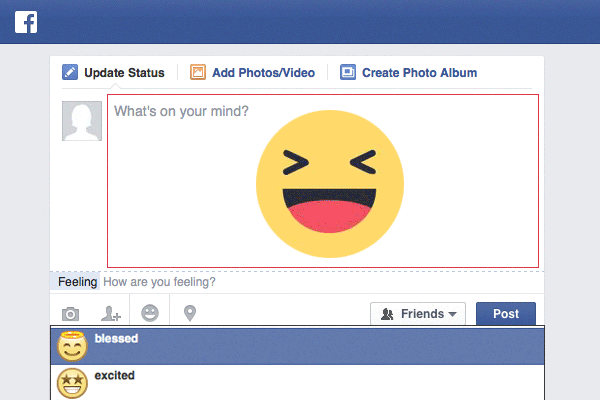The ‘wow’—and ‘sad’—factors of Facebook’s new emojis

Facebook users now have the capability to do more than just “like” a picture of their friend’s baby or a new recipe posted by their favorite food blog.
Last week, the social media platform launched five animated emojis—love, haha, wow, sad, and angry—giving users more choices to react to posts on their newsfeed beyond the traditional thumbs up.
We asked Yakov Bart, assistant professor of marketing in the D’Amore-McKim School of Business, to explain how these “reactions” represent the evolving social media sphere as well as how businesses can leverage the emojis in their online campaigns.
On the evolution of social media
“Facebook claims the new set of reactions emerged from its comprehensive research on what emotions users most often would like to express in response to Facebook posts. In terms of timing, this change follows a recent trend of users shifting their interactions with Facebook to their mobile devices, where writing comments is relatively more effortful and time-consuming.”
On the benefits for businesses
“Facebook, along with business page owners and publishers, is likely to benefit from getting access to more granular measurement data when it comes to assessing how people react to posted content and advertising. This improved understanding of consumer sentiment may help with generating and delivering more relevant content to users.”
On the potential downside for businesses
“One of the biggest potential downsides that firms faced until today when posting content or paying for Facebook advertising is simply that they could get ignored—that is, receive a low number of ‘likes’ and shares.
“However, consider now the risks that may arise when consumers are looking to express negative emotions with the new emojis in response to branded content. Just like we’ve seen Facebook content go ‘viral’ and gain millions of ‘likes’ in the past, it is easy to imagine how similar dynamics can lead to an opposite effect. Some branded advertising or sponsored content could become associated with large numbers of much less favorable but highly visible consumer opinions, with an excess of ‘sad’ or even ‘angry’ emojis.
“Consequently, businesses may become concerned with carrying such high risk of a substantial brand damage from the new buttons and adopt a much more cautious approach when it comes to their content dissemination strategy on Facebook.
“In particular, today the worst possible damage from paying Facebook to ‘boost’ your content reach is that your investment will be wasted. In the new reality, however, reaching consumers who are not core brand fans through boosting can actually backfire and generate a highly visible negative consumer reaction that could be detrimental to brand reputation.”
In terms of timing, this change follows a recent trend of users shifting their interactions with Facebook to their mobile devices, where writing comments is relatively more effortful and time-consuming.”
— Yakov Bart, assistant professor of marketing
On how this will affect consumer content
“Indeed, users may have similar concerns when thinking about creating and sharing their own content under this new regime. Just like with brand-related content, a typical risk used to be that a user-generated post could get ignored or receive some negative comments. However, knowing how easy it might be for others to express negative emotions in response to a post, users may also become more cautious and selective in generating and sharing content.
“Moreover, while many users may appreciate having a wide range of potential emotional reactions to choose from in response to a Facebook post, some may feel overwhelmed when trying to decide whether recent positive news from a friend deserves a ‘like,’ ‘love,’ or ‘wow,’ and may decide at the end to abstain from expressing any reaction at all. Both such trends—reduced content generation and reduced likelihood of reacting to content generated by others—could contribute to reducing user engagement with Facebook in the long term.”





